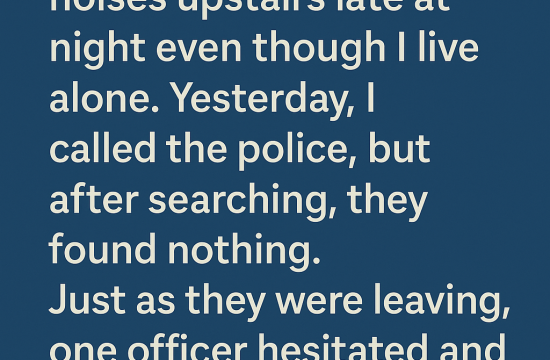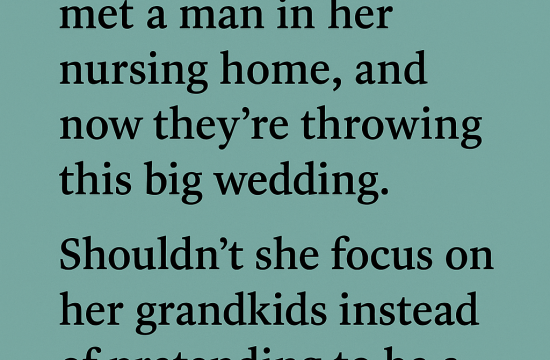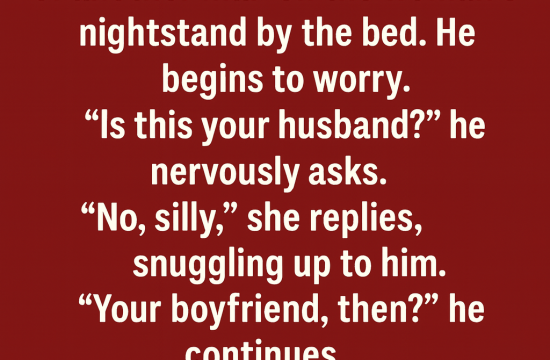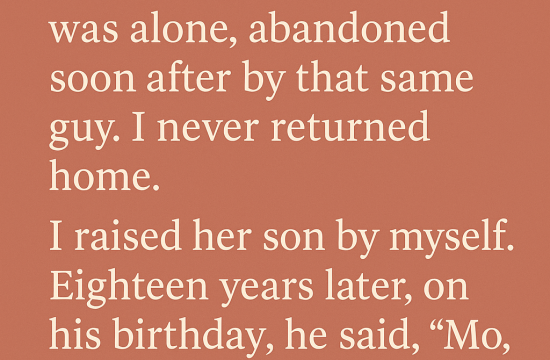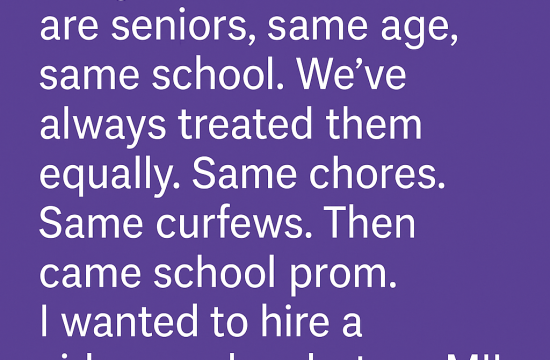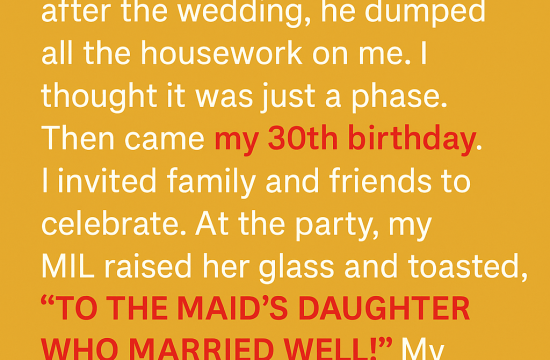A woman was describing the moment her daughter started her period.
“We were so happy. We even celebrated it. We bought a cake, a box with everything she might need, and sat her down to talk about what it all meant. She felt seen, supported, and loved.”
A month passed.
Then one afternoon, her daughter came home and said,
“Mama, I didn’t get it this month.”
I looked up from the sink, my hands still wet, a dish towel tossed over my shoulder. Her voice was quiet—like she’d just broken something fragile.
I smiled gently. “It’s okay, baby. That’s normal at the start. It takes time to regulate.”
But she hovered in the doorway, fingers tugging at her sleeves.
Then she whispered,
“I think I did something wrong.”
My heart dropped. I quickly dried my hands and pulled her into the kitchen.
“Sit down. Start from the beginning. Tell me everything.”
She was just fourteen. Smart, creative, and a little shy around boys. She loved K-dramas and fantasy novels. We were close—or so I thought.
She told me about a boy in her class. Ismail. They’d been talking online—mostly about shows and music.
“He was nice, Mama,” she said.
“He said I was mature. That he could talk to me about stuff he couldn’t tell anyone else.”
That sentence alone triggered every alarm bell in my body.
She said he invited her over during lunch break—his mom was never home at noon.
“We just talked. But… we kissed once. He touched me. Over my clothes. I told him to stop. He did. But… I feel gross. I feel like I can’t breathe.”
I realized I was gripping her hand so tightly that she winced. I let go and tried to hold myself together.
We talked for over an hour. I stayed calm. I told her she wasn’t gross, that she did the right thing by telling me, and that no boy should ever make her feel pressured.
That night, after she’d gone to bed, I sat on the living room floor and sobbed.
My husband, Efe, found me like that. He didn’t ask. Just held me.
“We tried so hard to be open with her,” I whispered. “We celebrated her. We talked to her. How did this still happen?”
He shook his head.
“Because she’s still learning. And so are we.”
The next day, I called the school—not to cause a scene, but to get ahead of things. I asked to speak with the counselor, Ms. Rina. She’d always been warm and understanding with our daughter.
I didn’t name names. I just said two students may have crossed a line, and my daughter was confused and upset. Rina promised to talk to her gently and keep me in the loop.
For a while, things calmed. My daughter was quieter, but not withdrawn. We even went on a weekend picnic, just to breathe again.
Then, two weeks later, everything blew up.
Ismail’s mother showed up at our door.
She held her son’s phone in her hand, her face tight and unreadable.
“I think we need to talk,” she said.
She had found the messages—long threads, some sweet, some flirty, and some that made my stomach twist.
Ismail had recorded part of their lunch break meetup.
“Just for fun,” he told her.
“I wanted to show the boys I wasn’t lying.”
Efe stood up so fast, his chair nearly fell backward.
That’s when Ismail’s mother broke down.
“I didn’t raise him like this,” she sobbed. “I swear, I didn’t.”
She asked if she could speak to my daughter directly. I said no. Not yet. Not until we understood what to do next.
That night, I felt something I hadn’t felt since I was a teenager: a deep, burning fury.
We had two choices—go the official route, involve the school, maybe even the authorities. Or stay quiet and work this out between the families.
But this wasn’t a boys will be boys moment. This wasn’t a miscommunication. This was a violation.
We involved the school.
And then came the twist.
When they pulled the logs and discreetly asked around, they uncovered something darker—Ismail had a pattern.
Two other girls. One older. One younger.
Similar stories. Nothing criminal, but clearly inappropriate. Rina told me off the record:
“We’d had warnings before. But never proof.”
Now, we had proof. Videos. Messages. Screenshots.
He was suspended for the semester. His parents withdrew him from school entirely.
I thought we’d feel relieved.
But instead… we felt guilt.
My daughter didn’t want to be the reason someone’s life got ruined.
I sat her down one evening, just us two.
“You didn’t ruin anything,” I said.
“He did. And because you spoke up, other girls are safe now.”
She cried in my arms.
“Mama… am I still good?”
“Yes,” I said. “A thousand times yes.”
But the whispers at school didn’t stop. Kids are cruel when they don’t know the truth.
Rumors spread—she lied, she led him on, she overreacted.
I went back to the school.
This time, I didn’t whisper.
I asked to speak at the PTA.
I stood in front of thirty parents and laid out what had happened—no names, just facts. I talked about how girls are shamed into silence. How boys are told they can’t be taught better. How we all pretend not to see until it’s too late.
And then something happened.
A woman raised her hand.
“My daughter went through something like this too,” she said.
Then another.
And another.
It was like poking a hole in a dam. The truth came pouring out.
One mom suggested we form a group. A safe space. A circle. For the girls, for the parents.
We called it The Red Bench.
We met every other Sunday. We talked about consent, confidence, boundaries. We shared snacks. We sometimes just cried.
But the most unexpected twist?
Months later, Ismail’s mom showed up—with her son.
I barely recognized him.
She said,
“He’s been in therapy. We talk every day. He wanted to say something.”
He stepped forward, voice cracking but steady.
“I’m sorry. I thought it was a game. I didn’t understand. But I do now. I hurt people. I want to make it right.”
Silence.
Then one girl nodded.
Another said, “Thank you.”
It didn’t fix everything. But it mattered.
My daughter didn’t speak right away. But in the car ride home, she said,
“I think he meant it.”
So did I.
Time passed. Things softened. My daughter grew stronger. She began mentoring the younger girls in the club.
One day, she said,
“You know… I’m kind of proud of us.”
“Me too,” I said.
We started with cake and celebration.
We ended up building a space where girls could be safe, and where boys could learn to do better.
Because this isn’t just about damage control. It’s about creating a world where the damage doesn’t happen in the first place.
I look back now and realize—we weren’t naïve to celebrate her period.
We were brave to.
Raising girls shouldn’t start with fear. It should start with joy, openness, and pride.
And when that first red tide comes—it’s biology, yes. But it’s also the beginning of knowing your worth.
My daughter still has hard days. But she walks taller now.
And I’ve learned that parenting isn’t about having all the answers.
It’s about being a soft place to land—no matter what storm comes next.




